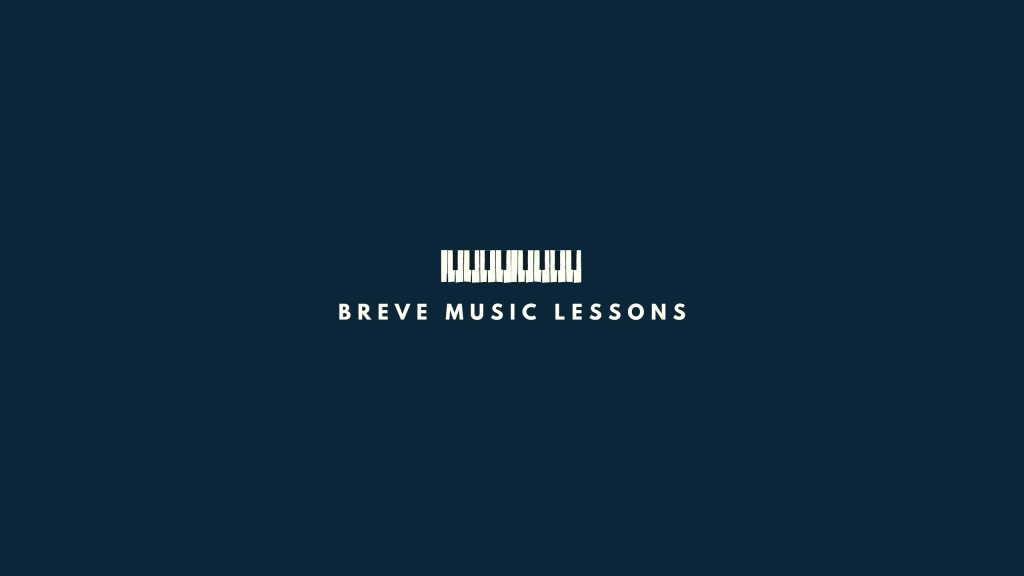Table of Contents
How To Be A Full Time Musician: Pursue Your Music Career
Becoming a full-time musician is a dream for many aspiring artists. It represents the culmination of passion, dedication, and the relentless pursuit of creativity. However, transitioning from a part-time musician to a full-time professional musician involves understanding the intricacies of the music business, managing time effectively, and navigating the challenges that come with making a living in this competitive field.
This article will explore what it means to be a full-time musician, how to make a living through music, the steps to take for a successful transition, effective time management strategies, and the challenges you may face along the way.

What Does It Mean to Be a Full Time Musician?
Understanding the Life of a Full Time Musician
Being a full-time musician means dedicating your life to creating, performing, and promoting music. It involves not only playing music but also engaging in various aspects of the music business, such as marketing, networking, and managing finances. Full-time musicians often spend their days writing songs, rehearsing, and performing gigs, while also handling the administrative tasks that come with running a music career. This lifestyle requires a deep commitment to your craft and the ability to adapt to the ever-changing landscape of the music industry.
Differences Between Part-Time and Full-Time Musicians
The primary difference between part-time and full-time musicians lies in their level of commitment and the time they allocate to their music careers. Part-time musicians often juggle a day job while pursuing music in their evenings and weekends. In contrast, full-time musicians dedicate all their time to music, allowing them to focus on songwriting, music production, and performing without the constraints of a full-time job. This commitment can lead to greater opportunities for growth and success in the music business, but it also comes with its own set of challenges.
Common Misconceptions About Full-Time Musicians
Many people hold misconceptions about what it means to be a full-time musician. One common belief is that full-time musicians are always financially stable and successful. In reality, many musicians face financial instability, especially in the early stages of their careers. Another misconception is that full-time musicians spend all their time playing music. While performing is a significant part of the job, much of a musician’s time is spent on marketing, networking, and managing their careers. Understanding these realities is crucial for anyone considering becoming a full-time musician.
How Can You Make a Living as a Full-Time Musician?
Exploring Different Revenue Streams for Musicians
To make a living as a full-time musician, it’s essential to explore various revenue streams. Many musicians rely on a combination of income sources, including live performances, music sales, streaming royalties, merchandise sales, and licensing deals. Gigs can provide immediate income, while digital platforms allow musicians to reach a broader audience and generate passive income through streaming. Additionally, many musicians engage in music production, offering their skills to other artists or creating soundtracks for films and commercials, further diversifying their income.
How to Balance a Day Job While Pursuing Music Full-Time
For those transitioning to a full-time music career, balancing a day job with music can be challenging but necessary. Many musicians start by maintaining a part-time job to support themselves while they build their music careers. This approach allows them to invest in their music without the pressure of financial instability. It’s crucial to find a job that offers flexibility, enabling you to dedicate time to songwriting, rehearsals, and gigs. As you gain traction in your music career, you can gradually reduce your hours or transition to music full-time.
Tips for Building a Sustainable Music Career
Building a sustainable music career requires strategic planning and dedication. Start by setting clear goals for your music career, whether it’s releasing an album, booking a certain number of gigs, or growing your online presence. Networking is vital; connect with other musicians, music producers, and industry professionals to open doors for collaboration and opportunities. Additionally, invest time in honing your craft, whether through songwriting workshops or music production courses. By continuously improving your skills and expanding your network, you can create a solid foundation for your music career.
How To Be A Full Time Musician? (Step-By-Step Guide)
Essential Skills and Knowledge for Aspiring Musicians
1. Digital and Social Media Presence
In today’s music industry, a strong online presence is essential for full-time musicians. Learning how to manage your social media profiles, create engaging content, and interact with fans online can greatly increase your visibility. Platforms like Instagram, TikTok, YouTube, and Bandcamp can help you reach a broader audience. Having an up-to-date website where fans can learn about your work, upcoming shows, and purchase merchandise or music is also crucial.
2. Licensing and Royalties
Understanding how music licensing and royalties work can be key to generating passive income as a full-time musician. Familiarize yourself with platforms like ASCAP, BMI, or SESAC to ensure you’re getting paid for public performances of your music. Learn how to license your songs for commercials, movies, and TV shows, which can provide additional revenue streams.
3. Technical Skills (Recording and Production)
With the rise of affordable home recording equipment and software, many musicians now produce their own music. Learning the basics of recording and producing your own tracks not only saves money but also gives you more creative control over your sound. Proficiency in digital audio workstations (DAWs) like Pro Tools, Logic Pro, or Ableton can be a valuable asset.
Creating a Plan to Transition from a Day Job to Music Full-Time
4. Develop Multiple Income Streams
Relying on just one source of income as a musician can be risky, especially during the early stages. Diversify your revenue streams by exploring different income opportunities such as teaching music lessons, selling merchandise, performing live gigs, streaming royalties, and even creating a Patreon account where fans can support you directly. Multiple streams of income can provide stability as you transition to full-time music.
5. Build an Emergency Fund
Before making the leap to full-time musicianship, it’s important to build an emergency fund that can cover 3-6 months of living expenses. The music industry can be unpredictable, so having a financial cushion will give you peace of mind and flexibility as you grow your career. This can prevent you from feeling pressured to accept gigs or projects that don’t align with your goals just for the sake of income.
6. Evaluate Health and Retirement Plans
Musicians are often freelancers or self-employed, which means you may not have access to traditional employer-provided health insurance or retirement benefits. It’s essential to research options for health insurance and start planning for retirement by contributing to savings or an individual retirement account (IRA).
Networking and Building Relationships in the Music Industry
7. Collaborating with Other Artists
Collaboration can be an excellent way to grow your network and create opportunities. Work with other musicians, songwriters, or producers to create new projects. These partnerships not only open the door to new creative ideas but can also expose you to each other’s fan bases, helping you both grow your audiences. Whether through co-writing, guest appearances, or cross-promotions, collaborating is a powerful way to expand your reach.
8. Join Music Organizations and Associations
Many musicians find value in joining music-related organizations such as local musician unions, songwriting associations, or genre-specific groups. These organizations often offer resources such as legal assistance, educational workshops, and industry contacts that can support your journey to becoming a full-time musician. Attending conferences and events hosted by these organizations can provide access to valuable contacts in the industry.
9. Seek Mentorship and Professional Guidance
Finding a mentor or professional guidance can be invaluable as you navigate the complexities of becoming a full-time musician. Seek out experienced musicians, managers, or industry professionals who can offer advice on managing your career, negotiating contracts, and finding new opportunities. Mentorship can provide insights into common pitfalls and help you make informed decision.
How to Manage Your Time Effectively as a Full-Time Musician?
Strategies for Balancing Music and Other Responsibilities
Time management is essential for full-time musicians, especially when balancing music with other responsibilities. Create a structured schedule that allocates specific time blocks for songwriting, rehearsals, and administrative tasks. Prioritize your music commitments while also allowing time for personal life and self-care. Utilizing tools like calendars and task management apps can help you stay organized and focused. By establishing a routine, you can ensure that you’re making progress in your music career while maintaining a healthy work-life balance.
Time Management Tips for Musicians with a Full-Time Job
For musicians who are still working a full-time job, effective time management is crucial. Maximize your evenings and weekends by setting aside dedicated time for music-related activities. Use your lunch breaks to brainstorm song ideas or connect with industry contacts. Consider setting small, achievable goals for each practice session or songwriting period to maintain motivation and productivity. By being intentional with your time, you can make significant strides in your music career while fulfilling your job responsibilities.
Finding Time to Make Music Amidst Other Commitments
Finding time to make music amidst other commitments can be challenging, but it’s essential for aspiring full-time musicians. Look for opportunities to integrate music into your daily routine, such as listening to music during commutes or brainstorming lyrics while exercising. Embrace the idea that even small increments of time can lead to creativity; a few minutes of songwriting here and there can accumulate into a complete song. Additionally, don’t be afraid to say no to non-essential commitments that may detract from your music pursuits. Prioritizing your passion will help you stay focused on your goal of becoming a full-time musician.
What Are the Challenges of Being a Full-Time Musician?
Common Obstacles Faced by Full-Time Musicians
While pursuing a music career can be incredibly rewarding, it also comes with its share of challenges. Many musicians face financial instability, especially in the early stages of their careers when gigs may be scarce. Additionally, the pressure to consistently create good music can lead to stress and burnout. The competitive nature of the music industry means that even talented musicians may struggle to gain recognition and build a fan base. Understanding these obstacles is crucial for anyone considering becoming a full-time musician, as it prepares you for the realities of the journey ahead.
How to Overcome Financial Instability in a Music Career
Overcoming financial instability as a full-time musician requires strategic planning and resourcefulness. Diversifying your income streams is essential; consider offering music lessons, selling merchandise, or exploring licensing opportunities to supplement your income. Additionally, budgeting and managing your finances wisely can help you navigate lean periods. Many musicians also find success through crowdfunding platforms, allowing fans to support their projects directly. By being proactive and adaptable, you can create a more stable financial foundation for your music career.
Dealing with Burnout and Maintaining Passion for Music
Burnout is a common challenge for full-time musicians, especially when the pressure to succeed becomes overwhelming. To combat burnout, it’s essential to prioritize self-care and maintain a healthy work-life balance. Schedule regular breaks to recharge and engage in activities outside of music that bring you joy. Surround yourself with supportive friends and fellow musicians who understand the challenges of the industry. Remember that your passion for music is what drives you; nurturing that passion will help you stay motivated and inspired throughout your journey as a full-time musician.
Additional Reading
More blog posts can be found here. Consider following Breve Music Lessons on Facebook.
